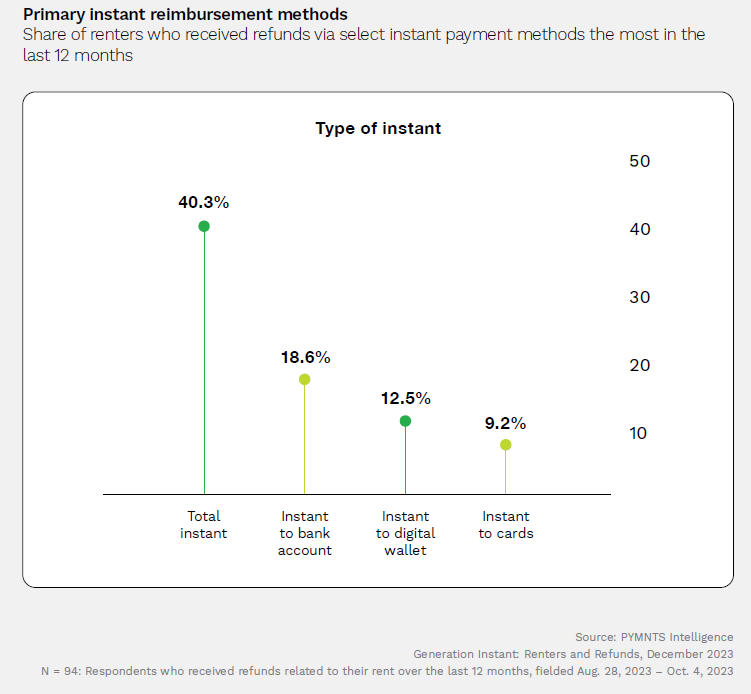Rental Apps Help Tenants Build Credit as Instant Rent Refunds Gain Popularity

The convenience of digital payments has extended to the rental market, with tenants increasingly opting for instant rent refunds through digital channels.
According to a recent PYMNTS Intelligence study, digital options for paying rent have become commonplace, and now tenants are seeking the same convenience for their refunds, especially when they involve large amounts. The survey, a collaboration with Ingo Money, revealed that more than 62% of renters have obtained at least one refund using instant payments, with 40% mainly relying on instant methods for refunds.
Additionally, rent-related refunds received via instant payments are 46% higher, with an average refund size of $1,222, compared to those obtained through non-instant means. High-income consumers receive higher average refunds of $1,159, compared to $446 for low-income consumers.
The study further revealed that this trend of seeking quick access to sizable refunds, such as security deposits or reimbursements for property work, is motivated by the inconvenience associated with waiting for checks to arrive before depositing them.
When it comes to the main reimbursement method used by the 40% of renters primarily receiving rent-related refunds via instant channels, instant transfer to a bank account is the most widely used method in the last 12 months by 19% of renters. This is followed by 13% and 9%, respectively, who chose digital wallets and cards for their instant refunds.

Overall, property management companies that offer instant pay options have a competitive edge in attracting tenants, the study showed. Over 70% of renters using digital payment methods report being very or extremely satisfied, while 61% of renters are highly satisfied when receiving rent-related refunds through instant payment methods.
Meanwhile, credit-building apps leveraging rental payments data, historically excluded from credit scoring models, are surging in popularity.
A recent example of this trend is the launch of a credit reporting service by financial wellness platform Bloom Credit. As PYMNTS reported, rental apps that are part of the initiative — TenantPort, a product of PayUp, and Rent App, which is operated by Visible — will report rental payment data to the major credit bureaus, giving responsible tenants the opportunity to build credit as they make their rent payments.
Emphasizing the importance of the service in an Oct. 31 press release, the company said “credit history plays a pivotal role in determining an individual’s access to affordable credit” in today’s financial landscape but “unfortunately, a significant portion of consumers, especially those who rent their homes, have been left without a meaningful way to establish credit.”
This opportunity to build credit scores via digital means aligns was highlighted in a separate study conducted by PYMNTS Intelligence and Sezzle, which found that credit-builder apps have been instrumental in helping users boost their credit scores, with nearly 80% of consumers more likely to see a score increase of over 100 points. The ease of use and motivation among app users contribute to their higher success rates in credit improvement, the PYMNTS report noted.
In summary, the convenience of instant payments for rent-related refunds has become a preference among renters, granting property management companies that adopt this trend a competitive edge in attracting tenants. At the same time, as tenants tap into digital tools such as Bloom’s credit-builder app, they are being empowered to proactively improve their credit scores and enhance their overall financial well-being.